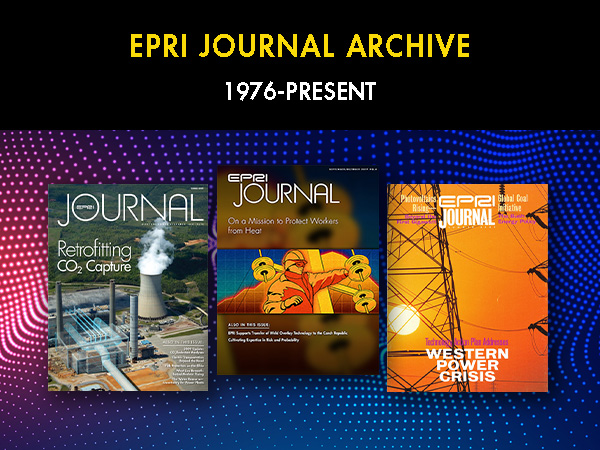During the COVID-19 pandemic, a cross-sector research team at EPRI has developed a series of resources to inform the power industry about various health-related technologies with potential to reduce the spread of infection:
Quick Insight: Light-Based Technologies for Air and Surface Disinfection (April 2020): This technical brief from EPRI’s Customer Technologies Program discusses two classes of light-based technologies for air and surface disinfection: ultraviolet (UV) lighting and non-UV LED lighting. UV light disinfection is a well-established technology that has been used in healthcare and other industries for decades. Guidelines and experience from those applications can potentially be applied and adapted in power industry settings. Because high levels of UV light can adversely impact human health, this technology should be used with appropriate protective equipment and processes or in spaces unoccupied by people. Non-UV LED lighting is an emerging technology that uses visible, near-UV light. If implemented in a consistent, appropriate manner, it can potentially be used for disinfection in the presence of people with minimal or no protective equipment. EPRI has launched research to evaluate electric disinfection technologies and applications to help support utilities and their customers during the pandemic.
Disinfecting Control Rooms and Energy Control Centers (April 2020): Produced by EPRI’s Plant Reliability and Resilience Program, this brief discusses the pros and cons of various options for chemical disinfection of surfaces (wipes, sprays, mist applicators) and areas (fogging products, continuously disinfecting surface covers).
Safety and Operational Guidance for Ultraviolet Germicidal Irradiation (April 2020): This brief from EPRI’s Plant Reliability and Resilience Program discusses human safety and operational guidance for UV disinfection devices, considerations for selecting devices, health effects of UV light, relevant standards and exposure limits, and personal protective equipment for use during UV disinfection activities.


Characterization of Ultraviolet-C Sanitizers for Controlled Area and Surface Disinfection (May 2020): Some nuclear and fossil power plant components emit electromagnetic waves with potential to create electromagnetic interference with other equipment and adversely impact plant operations. EPRI’s Plant Reliability and Resilience Program evaluated the electromagnetic emissions of several UV light disinfection devices and assessed the risk of interference. Researchers also evaluated various operational characteristics of the devices.
Non-Ultraviolet Disinfection Lighting: Analysis of Power Consumption and Spectral Output (December 2019): In this study, EPRI’s Customer Technologies Program analyzed the power consumption and operational costs of non-UV LED light disinfection devices in various settings, such as medical facilities, classrooms, offices, gyms, bathrooms, and kitchens. The study also evaluated the potential energy impacts of the technology’s broad deployment.
Facial Thermography Tools to Help Reduce Spread of COVID-19 (April 2020): Across the world, power plants are using facial thermography to help reduce the spread of COVID-19 by detecting elevated skin temperatures. This video, produced by EPRI’s Plant Engineering Program, discusses the technology’s capabilities as well as best practices and limitations.
Quick Insights: Research Pathways for Building Technologies that Enable Healthier Work and Living Spaces (May 2020): This paper from EPRI’s Technology Innovation Program discusses research opportunities to advance understanding of four promising technologies and approaches that may reduce transmission of pathogens in buildings and enhance human comfort and health: non-UV LED lighting for disinfection, cold plasma, high-efficiency dehumidification systems, and passive house design standards.
Image at beginning of article shows a detailed view of LEDs that emit violet disinfecting light with a wavelength of 405 nanometers.
Key EPRI Technical Experts:
Mark Woodby, Ron Domitrovic, Sara Mullen-Trento
For more information, contact techexpert@eprijournal.com.

